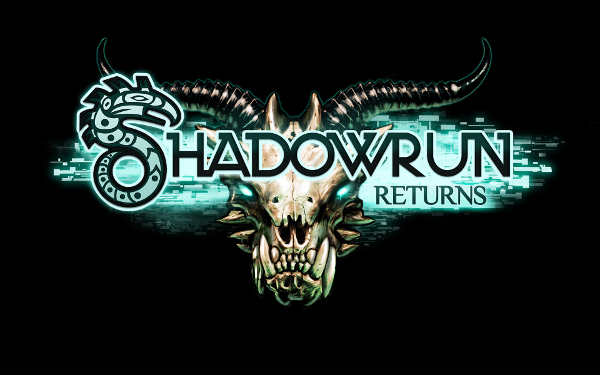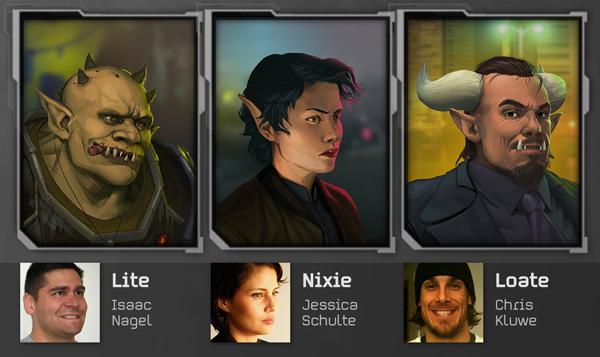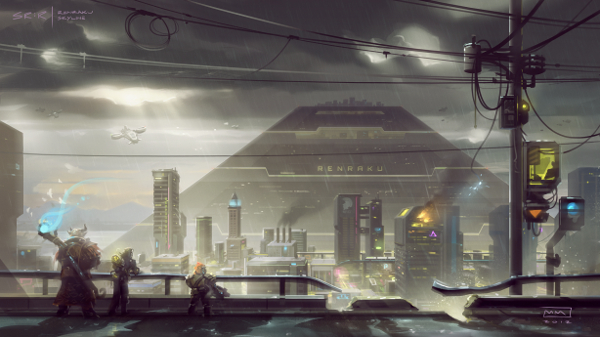
Part two of my interview with Jordan Weisman, as we talk more about Kickstarter and get into your specific questions. You can read part 1 here.
Max: You’ve been a major face for this current game and obviously one of the biggest driving forces behind it. Hypothetically however, could it have succeeded without your backing?
Weisman: I think so, I think if the team that was doing it 1.) Had good experience and could demonstrate to the Kickstarter audience that they had the competency and history to be able to create good games and 2.) Showed the right respect to the fans for the world they cared for, I think it still would have been successful.
Max: Getting into the broader Kickstarter aspect, you’re starting to see this sort of cult of personality effect with people like Tim Schafer where name recognition alone garners a lot of support. With your experience and success, do you think if you lent your name to a project, specifically a new IP, that you might see similar Kickstarter success?
Weisman: Well, we hope to find out next month. *Laughs* Not gonna say more than that at the moment, but coming up soon we’ll know the answer to that question.
Max: We’ve had a few Kickstarter games already get released (perhaps most notably FTL), but I think it’s fair to say that at this point your game might be the most high-profile tet. Does that put any additional pressure on you or your team to validate not just your own game, but the Kickstarter model? What kind of stress does having all that money from fans bring?
Weisman: The whole Kickstarter thing has been an interesting and incredibly high-pressure experience. Having been making games for 30 years and having funded them in a whole variety of ways, this is the one that because it was funded by the fans, we definitely felt that pressure. When you’re working for a publisher or investors, they’re investing in a portfolio of product, and purposefully not emotionally involved with any one of those projects because they have to be ready to kill one at any moment if it’s not working. Having been in that role at Microsoft, I know exactly what that’s like. This is a very different thing; the people who back this product are very emotionally involved in the product. They’re not betting on a portfolio, they’re not interested in return on investment, they’re emotionally invested in the things they back and they want to see them come out and they want to see them be great. As a team and an individual, we really felt that pressure. Being the first seven figure game to hit the market, frankly, that pressure didn’t really occur to us. It’s our effort to try and meet the expectations of the fans that backed us, and hopefully in doing so meet the expectations of a much wider audience.
Max: Looking at your Kickstarter page, you had 3 $10,000 backers, 12 $2500, 41 $1000, 100 $500, etc. That’s a lot of money for your average Joe. Who are these superfans and what are they looking to get out of this at that level of funding besides sweet swag?
Weisman: It is an exceptional level. There are actually a total of 4, one person upped their backing later to that $10,000 level and we’ve gotten to know all 4 of those people pretty well. We brought them out to the office, we spent a bunch of time with them, we corresponded with them. The swag really wasn’t what motivated them, in each of those 4 cases the various versions of the game played an important role in their gaming history and brought them a lot of pleasure over the years, and they saw it as a way of giving back for that. It’s enormously generous and obviously we’ve tried to reflect that in the game for all those backers who have images and pictures we’ve done portraits of all those people, they’re all characters in the game, then there’s tribute characters for people who had lost love ones who were big Shadowrun fans. This whole experience with the fans has been enormously emotional for me personally and the team as a whole because the people involved have that level of connection with the property and we’re really trying to honor that and respect that and return it with our own passion and love.

Max: It seems like especially with these Kickstarters for older titles, there’s definitely an aspect of wanting to see something new, but also wanting to reward creators for past work, which it sounds like is partially the case here.
Weisman: There’s no question that on Kickstarter there’s been a significant advantage for titles that are the direct descendants or so called spiritual successors to products, games and universes that people have an emotional attachment to. There’s no question that has been a big role, to me the interesting thing is to go back to the earlier question of does that apply to new IPs as well. We’ve seen that in some cases with FTL and Banner Saga, good midsize title funding for new IP, and to me that’s ultimately the more exciting opportunity that’s offered by crowd-funding. Because if crowd-funding turns out to be like every other publisher in the world where it’s primarily about sequels, then we’ve lost the opportunity to generate new things we care about, because God knows that’s the hard part for a publisher, to take the bet on new IP. The hope is the audience is more willing to take that bet than the fiscally conservative publishers. To me that would be the great long-term solution for the creativity of our various industries, if the audience could say “You know what, we like new things! We don’t just want the 13th sequel to a game we liked a decade ago.”
Max: If we’re being honest though, looking at the relative success of the two Kickstarter campaigns, FTL met their goal, you guys destroyed it. Do you think going into your unnamed new project that you’ll retain some of that fan fervor?
Weisman: I hope so. I hope two things. One, that people who have liked different games I’ve done in the past, whether it’s Battletech, Mechwarrior, Shadowrun, Crimson Skies whatever, would be willing to take a flyer with me on new IPs because they’ve liked previous IPs, and I’m hoping that as a studio what we’ve shown on Shadowrun Returns will show we have the competence to execute on these ideas and do it in a way that is encompassing of the community, but that also gives them the faith we can do a good job on a new IP. Certainly Kickstarter, or any kind of crowd-funding site, is a Wild West situation because you’re having to trust the people with your money, there’s no way to get your money back if they don’t ship or they ship with something really bad, so you’re taking a risk. And I think one of the key things you have to do with your offering whether you’re an old fogey like me, or someone like the FTL or Banner Saga guys who have some background in the industry but aren’t a dinosaur, you have to build your credibility and present it to the audience and they have to believe in that credibility and you ability to execute.
Max: One last Kickstarter question. There was recently another pretty big Kickstarter announcement with Autoduel, which has another gaming luminary, David Jaffe, acting in sort of an advisory role. Do you see a situation in the future where someone like yourself or a Jaffe or a Schafer could boost a Kickstarter simply via celebrity endorsement?
Weisman: Kind of the Executive Produced by Steven Spielberg thing? I think in some respect we’ve already seen that with [Chris Avellone], a good guy. He kind of lent his name to three games simultaneously, and obviously he can’t be lead designer on all three games, but it certainly helped. I’m not familiar with the Jaffe one because we’ve been very heads down, but I definitely think that’s feasible. Again I think it’ll come down to track record. If someone’s lent their name to a project and it’s well-respected you’d be willing to bet on them again, but if you find it didn’t come out how you expected than maybe you wouldn’t.
Max: As sort of a side note, with you launching on Steam, what are your thoughts on the Steam Greenlight system and customers acting as gatekeepers to a digital storefront?
Weisman: I think it’s an interesting idea. I haven’t spent enough time studying to see how validated it is, but it’s definitely as you said related to the Kickstarter concept of “we the gamers are going to have a say in what we’re offered.” The difference there is that, I believe, the creators in that case have already had to fund the game right?
Max: Some are funded, some are in early production stages or launching Kickstarters, but Greenlight only offers a place on Steam not funding.
Weisman: I think the interesting thing there is “who’s the arbiter?” You look at iOS or Android and you have basically an infinite number of games available on those systems, but the discoverability of those games is almost impossible because there’s an infinite number. If Steam’s argument is that they don’t want to have an infinite number of titles, but a smaller number of titles that are more discoverable, then we need a process on how to curtail that and it’s great to have the audience involved. Alternatively, and what I think stores should embrace, is more of the recommendation engine like you have on Amazon. If more stores embraced the idea of a recommendation engine then that opens up a lot more opportunity as a creator of content because if I’ve created the world’s best micro-management paperclip game and I know there’s not a giant market for it and it’s not going to get promoted by Steam or iOS, then if you’re a particular fan of that it’ll bubble up on top for you. That means I have access to my audience, no matter how niche my audience is, and that’s a more powerful long-term solution I think for all these digital storefronts.

Max: As a creator, do you feel the more direct link with the community ties your hands with what you can do with the game at the risk of upsetting your audience, or do you think they trust you to do what’s best with their investment?
Weisman: It definitely changes the development process. As a creator you have to set the ground rules. We tried to do that at the beginning of our Kickstarter by saying “Hey, we’re gonna keep you really well informed. You guys are going to be voting on what we do every week.” That way you’re seeding back to the audience what they’ve entrusted us with, the creative power to create something they want. You can’t really name all the great movies and television and novels that have been written by giant committee, and the creative process is best when it’s focused. That said we listen to the audience, and we have course corrected when it’s clear that something we’re doing is too far off base from what the audience is looking for. Being responsive to your audience is not being driven by a committee, but setting the boundary of where those things fall is important. There is the kind of workload of communication during the development which is significant, and I think it’s something a lot of Kickstarter projects don’t budget appropriately for, and neither did we to begin with. But while t it’s a lot of work, it’s also very energizing because it allows you to get some sense of validation for the directions you’re going in early in the product process. When you’re sitting in the bubble with your team, you can sometimes convince yourselves of things that aren’t true. So this need to continue to communicate to the audience can help break that bubble and wake you up during the process.
Max: Regarding the cross-platform aspect, from what I understand the current plan is to release content bundles for tablets with best of the PC content. Is that still the current plan?
Weisman: Yeah that’s still the plan. We’re not sure how often new content bundles will be brought out to the tablets, there’ll be some time to get the infrastructure together, but that’s the current plan.
Max: Long-term do you see it being feasible for direct cross-platform content sharing?
Weisman: That is certainly our long-term goal.
Max: Will game data transfer between platforms?
Weisman: Not currently.
Max: Is there going to be a DRM-free PC copy available outside of Steam?
Weisman: Our license with Microsoft at the moment restricts the DRM-free copies to just the backers. At the moment, that’s as far as we can go.
Max: How are the old Genesis/Nintendo games influencing Returns, and can we expect Easter Eggs, callbacks, that sort of thing?
Weisman: Yes and yes. The game definitely was influenced by the old 90s consoles, probably leaning slight to the SNES side, and yes there are callbacks out of each that make a return visit in [Shadowrun Returns], and we’ll leave it at that.
Max: You’ve listed the current playable races, but are there plans to add rarer metavariants or non-metahuman sapients? Pixies in particular were called out by a CHUD reader.
Weisman: I wouldn’t say plans. There’s hopes, and this goes back to our early discussion of what we do with success, and if indeed sales give us the opportunity, then yes we’d love to continue to add new player character races and overall more content and options from the world. I can’t comment specifically on pixies, but broader yes we hope the sales give us that opportunity.
Max: Alright, one final question. I’m personally stoked to play both Shadowrun Returns and Mechwarrior Online, but how much money do we need to throw at you directly to get a new Crimson Skies game?
Weisman: *Laughs* Well, I first have to succeed in getting Microsoft in giving us the rights to do that, but then I’d come up with a number because boy I’d love to do that.
Max: Any last thoughts?
Weisman: I think the biggest thing I’d love to say to the current backers is to thank them for their support to get us to this point, and then to fans in general that the best thing they could do now is to get out and tell people about it because we don’t have a marketing budget, and we’re counting on fans to go out and spread the word.\
You heard the man people. This Thursday, July 25h, Shadowrun returns. You can pre-order a copy on Steam here, and if you need help convincing your friends (the poor dolts), how about a fresh new gameplay trailer?
Follow me on Twitter
